Since the 2019 European Parliamentary elections, the European Union has achieved significant progress, while navigating a sea of unprecedented challenges. Forward-thinking policies have been adopted and implemented in many areas of common interest, placing the EU at the forefront of global legislative innovation.
However, the path has been strewn with obstacles. The COVID-19 pandemic put the EU and the rest of the world on hold for two years, while Russia’s full-scale invasion of Ukraine has prompted critical introspection about Europe’s defence capabilities. The transition away from Russian energy sources has led to soaring prices, exacerbating inflation already heightened by the pandemic.
All this has created discontent amongst large parts of the European population, whose standards of living have been decreasing since 2019. The mood of uncertainty has fomented a wave of protests and bolstered support for the far-right. On the other end of the spectrum, younger demographics express disillusionment with the EU’s failure to enact bolder reforms. Their diminished presence in the elections could contribute to a dramatic alteration to the political landscape.
From now until the elections, Eurozine is publishing a series of articles unravelling national intricacies while also delving into overarching issues. Grouping countries in regional blocs, experts will measure the political atmosphere at a crucial moment for Europe and its neighbourhoods.
Guest editor Raluca Besliu
In partnership with Studio Europa.

In collaboration with
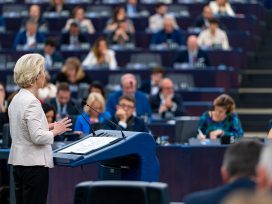
As the EU confronts external challenges – including the war in Ukraine, rising geopolitical tensions, and potential shifts in US policy – will its internal politics align to meet these crises, or will the growing influence of the far right impede progress on the continent’s most pressing issues?

Economic pressures combined with growing climate impacts mean that the next five years will be crucial for the European Green Deal. But with gains for the right in the European Parliament and growing pushback against environmental policies, how can Europe maintain its climate goals?

France’s snap elections are the most spectacular sign that EU elections now matter. But whether the far right’s shift from fundamental opposition towards reform from within politicizes the EU in a positive way depends on the centre’s readiness to hold its ground.
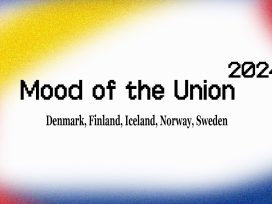
Battle for the middle ground
Denmark, Finland, Iceland, Norway, Sweden
Despite far-right rumblings, no populist wave is expected in the Nordic countries. Instead, the EP elections are a battle between centre right and centre left. Alongside migration and defence, environmental agendas have been dominant, with Green parties expected to outperform.
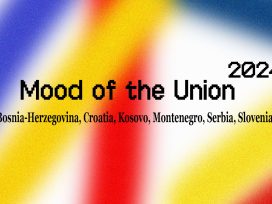
Balkan realities
Bosnia-Herzegovina, Croatia, Kosovo, Montenegro, Serbia, Slovenia
Since Russia’s full-scale invasion of Ukraine, the EU’s rhetoric on enlargement in the Western Balkans has taken an optimistic turn. Whether that continues depends on the European vote. But whatever the result, it is the political realities that count. And in the Balkans, these are far from consistently pro-European.
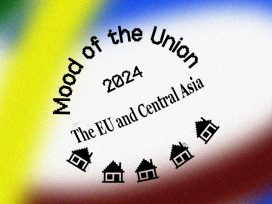
Another ‘New Great Game’?
The EU and Central Asia
Although the EU’s engagement with Central Asia has increased significantly since February 2022, the region is not about to abandon ties with Russia. With the US and above all China also competing for influence in this resource-rich part of the world, Central Asia is undergoing a complex and perilous process of realignment.
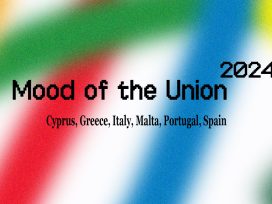
Europe’s weary shores
Cyprus, Greece, Italy, Malta, Portugal, Spain
Political instability, recession and environmental crises have contributed to the rising swell of social discontent in Europe’s south. But there is one issue more than any other being capitalised on by the Mediterranean’s resurgent far-right: migration.
Fading hopes for change
Bulgaria and Romania
In Bulgaria and Romania, the EP elections coincide with national elections. Interminable political instability, corruption and socioeconomic tensions all contribute to voter fatigue. With the far right in the ascendant, 9 June could be a watershed.
Bracing for a populist surge
Estonia, Latvia, Lithuania
Discontent with ruling parties pervades the Baltic States, bolstering the chances of rightwing populists across the region in the European Parliament elections. Yet the security concerns caused by the ongoing threat from Russia hold Euroscepticsm within bounds.
Prefiguring Europe’s future
Czech Republic, Hungary, Poland, Slovakia
Since the war in Ukraine, the Visegrád Four group no longer articulates a common voice in the EU. Even the illiberal alliance between Hungary and Poland has come to an end. Yet in various ways, the region still demonstrates to Europe the consequences of the loss of the political centre.
Cooperation or neocolonialism?
The EU and SWANA
From migration to trade and energy, the EU’s partnerships with Mediterranean non-EU countries are influenced by a neocolonial mindset. The bloc must shift from its current tactics of exclusion and resource extraction towards genuine cooperation that respects the sovereignty and aspirations of these crisis-struck nations.
Can the centre hold?
Belgium, France, Germany, Luxembourg
In the run up to the European Parliament election, popular discontent pervades the bloc’s core. Despite robust opposition, the far right is the only force gaining strength. More than ever, the EU’s global ambitions depend on public approval for national governments.
A changing world
EU, USA, China
From COVID-19 to economic tensions and full-scale war in Ukraine, the relationship between the EU, the US and China has undergone seismic shifts since the last European Parliamentary elections in 2019. This year’s elections on both sides of the Atlantic are likely to alter these dynamics, changing the geopolitical landscape again.
Europe turns east
Armenia, Azerbaijan, Belarus, Georgia, Moldova, Ukraine
Russia’s war of aggression in Ukraine has put eastern Europe firmly at the centre of the EU’s foreign policy agenda and given fresh impetus to reforms by candidates for EU membership. But with rightwing movements gaining ground, support for Ukraine and EU enlargement is under threat.
The European Parliament elections on 9 June are a referendum on EU policy since 2019. Will voters give Europe the green light for further progress, or pull the brakes? A new Eurozine series measures the political atmosphere in the EU and its neighbourhoods at this crucial moment.







